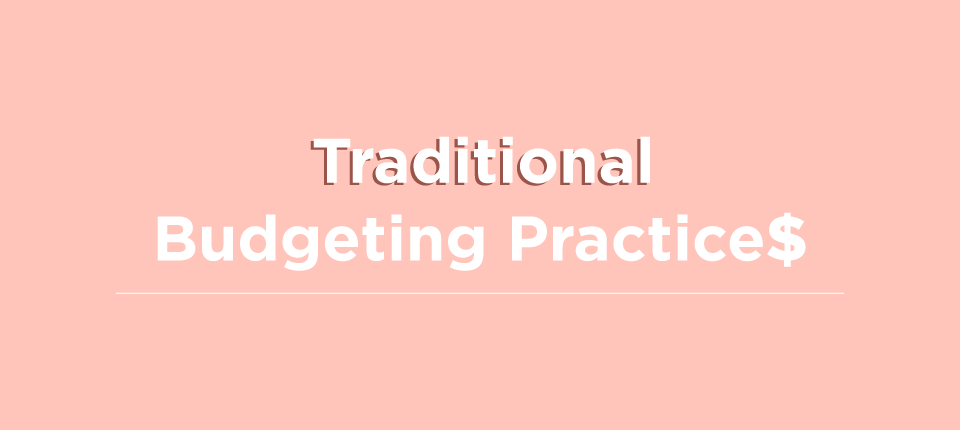Altruism is having concern for the well-being of others without ulterior or selfish motives.
If you're like us, you protect your inner-circle fiercely. (We can mama bear like nobody's business.) But once that circle starts to widen from your friends and family to your neighborhood, to your state, to the world, it can be all too easy
to feel helpless.
Practicing altruism can be something small, like giving up your seat on the bus—or something more involved, like volunteering your time for a beach cleanup. But people get busy, and handling our own lives can be a full-time job, so thinking altruistically might fall by the wayside. If volunteering your time doesn't feel like something you can do consistently, there are other options out there. Enter the budget.
Budgets are incredibly unique to each individual's circumstances—and we are not here to give you a one-size-fits-all prescription. Instead, we're asking how we can use our budgets as a way to put some good in the world.
Traditional budgets are planning tools. It's a way of intentionally categorizing your finances by income and expenditures for a set amount of time. Most budgets split your expenditures into your needs and your wants. Whether you prescribe to the "pay yourself first" method or the
50/20/30 method, you know exactly where your money is going.
Using a budget is a great way to confidently make money moves. When you consistently have an eye on your finances, incorporating altruistic practices can be done in a couple of different ways. While there are dozens of budgeting practices out there, we don't usually see plans that remind us to give to others. We decided to fold in four new practices you can use to budget for the better—no matter what your money situation looks like.
Donate
Making donations to an organization or cause has never been easier (It can even be done on Instagram.) So choose something you believe in and go from there. Once you have a cause in your sights, think about how much you can comfortably donate. Is this something you can automate and do monthly? Or is a one-time donation more reasonable? Remember that something as small as $5 can make a difference.
Shop Thoughtfully
If donating doesn't feel doable for you, think about how you're already spending your money. For example, if you shop on Amazon, consider using the
smile.amazon feature which allows you to passively donate without giving a cent. Truly just doing a few extra minutes of research before you 'add to cart' can change the way you shop.
If you LOVE supporting women-run businesses (us too) google everyday products and see which companies are run by women, then shop 'em. Are sustainable practices important to you? Think about finding companies that
treat the planet and their employees well before clicking buy.
Thanks to the Internet, you can find companies that align with your beliefs that sell everyday items from sponges and coffee to a new pair of shoes, without much extra time or money.
Become a Member
Non-profits in your city need your help. Head to your local museum, national park, or zoo and sign up for an annual membership. Normally this is a one time purchase that not only helps these institutions function but also allows you to see otters anytime you want!
Advertise (For Good)
Maybe your budget doesn't allow any room for the above options. You can still help by spreading the word! Something as small as posting on social media about companies whose values and work you support can keep these organizations at front-of-mind for folks.
We want you to be strategic and intentional with your money. Budgeting altruistically definitely doesn't mean shooting your money into the air. So, before you go out there and spread the good, consider these three tips.
- Ask what matters to you: Passion and purpose. Those two words will help you widdle down what places align with you. Think about causes you're passionate about and look for companies that are working in that direction. From there, look into their mission statements to determine if your money would be put to good use.
- Do your research: Websites like Charity Navigator, CharityWatch, Give Well, and GuideStar can help you focus your efforts on charities that really help the world (and don't just say they do.) However, your research doesn't have to stop at the computer— ask a friend! Your girl gang is chock full of advice, and chances are, this includes causes and organizations that matter to them. If not, you're spreading the word that your money can make a difference to the people you love. Good deeds are contagious, right?
- If possible, automate: Once you have an organization you want to help, find out how they prefer to receive donations. Most places now have systems to automate donations, so you give monthly without having to think about it.














